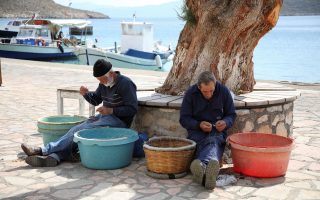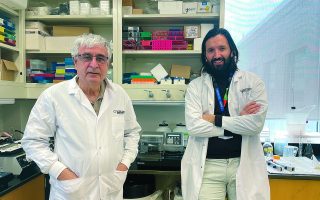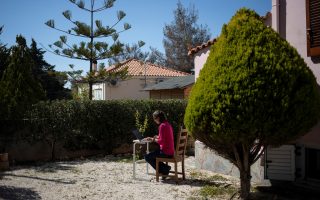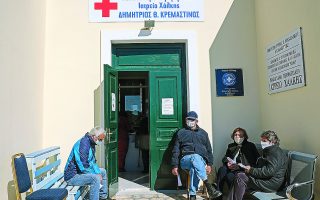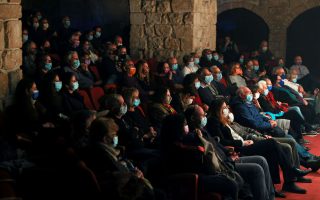Vaccine hesitancy slows Greek inoculation drive
Residents of the village of Sokaras on Crete who are still reluctant to get the jab against Covid-19 talk to Kathimerini about their concerns
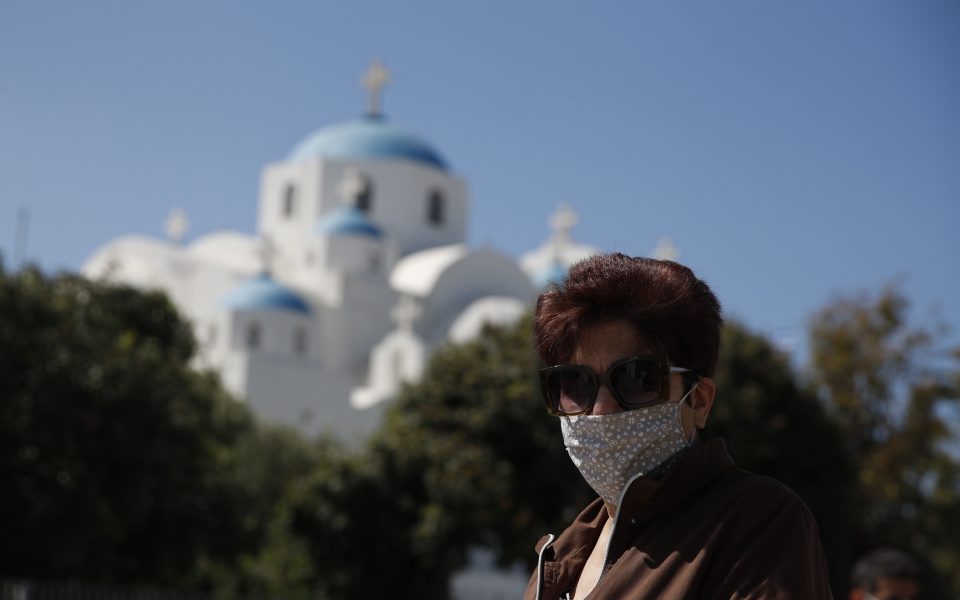
Τhe village of Sokaras lies about 30 kilometers from Crete’s southern coast and 50 km south of the island capital, Iraklio. Only 50 of the 1,200 residents have so far been vaccinated against Covid-19 and another 100 are on a waiting list, says Yiannis Vilanakis, the president of the community.
He is not one of them. “I have no confidence in the companies and the vaccines,” he says. Vilanakis lives a solitary life, he says, so he sees no urgency in getting the shot anytime soon. “In a couple of years, perhaps.”
By the middle of last week, at least 3,973,336 doses of Covid-19 vaccines had been administered in Greece. Assuming every person needs two doses (although the Johnson & Johnson vaccine requires only one shot), that’s enough to have inoculated about 18.5% of the country’s population. Although Greece’s vaccination program is progressing, data from the European Center for Disease Prevention and Control (ECDC) show that the country’s inoculation rates for those aged over 80 (63.5%) and among healthcare workers (63.9%) are among the lowest in the bloc. Around 27.6% of the population have received at least one dose of the vaccine, putting the country below the EU average (34.9%). Why are Greece’s numbers so low?
By Wednesday, at least 21.4% of the people in the Iraklio regional unit had received at least one dose. Stamatis Andreadakis, a 58-year-old resident of Sokaras, is worried about the side effects, particularly those using mRNA technology like Pfizer and Moderna. “I’ve only finished senior high school. I have no idea what the effects could be,” he says.
The village priest has already had the shot. Andreadakis says his faith in God has influenced his decision to avoid the jab, even if that means that he risks contracting the virus. The community has so far registered six confirmed cases of Covid-19. “My life is in God’s hands. He will show me the way when the time comes,” he says.
The coronavirus vaccine is not even the dominant topic of discussion among the villagers these days, Andreadakis says. “The price of olive oil is the most important,” he says.
Andreadakis’ 86-year-old mother, Anastasia, has too snubbed the shot. “I am 86 years old, how much time have I left?” she says. The woman says she is not afraid of the side effects. She simply sees no reason to get vaccinated. “I am not afraid of death, why should I be afraid of the vaccine?”
Charalambos Pachialakis, 69, is also not afraid to get the jab, he says. But he sees no reason to rush either. “I will do it later, if everyone else does it, and if I am not busy. This is a small community. There is very little contact with the outside world, after all,” he says.
The safety of living in a relatively isolated community away from the urban centers is not the only reason behind low vaccination rates. Misinformation, conspiracy theories and, in some cases, religious faith (the Greek Orthodox Church has formally endorsed Covid-19 vaccinations) all seem to influence attitudes in the community.
In the regional unit of Larissa in central Greece, only 20.1% of the population had received at least one dose of the vaccine by Wednesday.
“The media have yet to convince me,” said a 62-year-old man, who did not give his name, adding that most of his information comes from the local press and local clerics. Many Facebook pages run by Christian Orthodox groups advise against Covid-19 vaccination. A woman came under fire for posting a report on one of those Facebook groups saying that the archbishop of Piraeus got vaccinated. She urged people to get vaccinated. “You are putting yourself above the bishop of Morfou,” who is against vaccinations, another woman told her.
Vaccination skepticism however is not always driven by religious affiliation. Reports that the AstraZeneca vaccine has been linked to rare cases of blood clots, mostly women under 60, have made many younger women in Greece wait until one of the other jabs becomes available on the government’s platform.
Some are unwilling to get the shot at all. Marietta, 24, says she was told by her gynecologist that “women at a reproductive age should avoid [the vaccine].” A 27-year-old nurse in Thessaloniki in northern Greece, who claims to be in a steady relationship, says it is not yet clear if vaccination could have an effect on pregnancy.
The US Centers for Disease Control and Prevention (CDC) advises that “if you are trying to become pregnant now or want to get pregnant in the future, you can receive a Covid-19 vaccine. There is currently no evidence that any vaccines, including Covid-19 vaccines, cause fertility problems – problems trying to get pregnant.”
Others remain reluctant because of health concerns. “I suffer from four autoimmune disorders and I cannot trust a vaccine which is still in an experimental stage and which evidently causes many side effects, even death,” a 59-year-old hagiographer said without identifying herself, although most deaths do not appear to be linked to vaccination.
A 58-year-old anesthesiologist says that, although he is worried about contracting the virus, he has decided to wait. “Research is still ongoing,” he says. “I would like to be presented with a more certain product and not to feel forced to make a decision,” he says.
The head of the Panhellenic Federation of Public Hospital Employees (POEDIN), Michalis Giannakos, says that the reported data misrepresent the vaccination rate among health workers. “Ten percent of the staff are on a waiting list or are individuals who have been advised by doctors against getting the vaccine,” he says. Some health workers may had been skeptical at the beginning but they have now come around. He adds that there are 6,000 healthcare workers who contracted the virus and have not been vaccinated. “There are no Covid deniers in our ranks,” he said.
Mixed picture
In some regional units, vaccinations are progressing at a good pace. In the Kea-Kythnos regional unit, 62.8% of the population have received at least one dose. In the North Athens regional unit, the percentage stands at 45.4%. In other areas however, the rate is still very low. In East Attica, 13.7% of the population have received at least one dose. In West Attica, the figure is even lower at 13%.
Thanassis Avgerinos, deputy regional governor of East Attica, says he knows of no specific reason why people are avoiding the shots. Vaccination center officials are more optimistic. Asked about vaccine deniers, Giorgos Bellos, director of the Koropi center, said that “we face no such issue.” Kyriaki Akritidou, chief of vaccinations at the Megara Health Center, says the facility has many appointments and no cancellations. “We are on a very good path, we are building a wall of immunity,” said Mandra-Eidyllias Mayor Christos Stathis.
Konstantinos Karambelas, president of the municipal council and director of public health in the Municipality of Megara, says that the figures are low because some people canceled their AstraZeneca vaccination, but mostly because of the understaffed vaccination centers and supply issues.
In the first six weeks, the Megara Health Center was able to administer 38 vaccinations per day. The number has since then risen to 75. “There was a shortage of staff and vaccine supply,” Karambelas said. “Now everything is ticking like a Swiss watch.”
